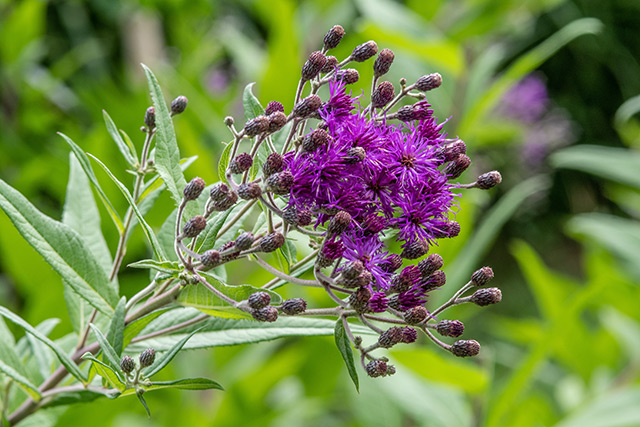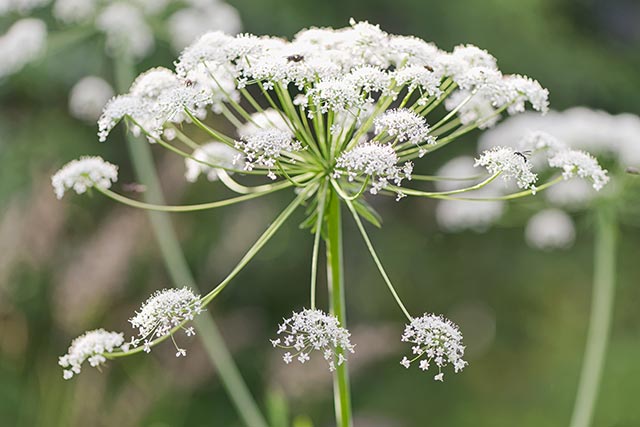Study proves the antifungal potential of thyme essential oil
01/24/2019 / By Ellaine Castillo

Essential oils derived from plants are widely used for an extensive range of applications, from cooking to the treatment of diseases. One of the most common essential oils come from thyme (Thymus vulgaris), an herb that grows in various parts of the world. Recently, researchers from the Prince Sultan Military Medical City in Saudi Arabia found that thyme essential oil has potent antifungal and cytotoxic activities.
Over the last decade, more incidences of fungal infections caused by opportunistic pathogens Candida, Aspergillus, Rhizopus, Penicillium, and Fusarium have been recorded. This has become a major problem due to the increasing population of drug-resistant fungi. Moreover, the increasing number of immunodeficient patients, such as those with acquired immunodeficiency syndrome (AIDS), raises the risk of severe and invasive infections.
Essential oils have shown great potential in treating fungal infections, especially those caused by different species of Candida, Trichophyton, and Aspergillus. Their possible application as natural fungicides can be attributed their phytochemical content, which includes different phenolic compounds. Many species under the genus Thymus have shown potential use as natural sources of phytochemicals with antibacterial and antifungal properties.
Thyme is an aromatic perennial herb that is traditionally used as a remedy for headaches, cough, diarrhea, constipation, flatulence, warts, worms and kidney problems. Previous studies have shown that this herb also has antiseptic, antimicrobial, and antioxidant properties. Researchers have identified compounds that potentially contribute to these properties of thyme. These include thymol, gamma-terpinene, rho-cymene, linalool, myrcene, alpha-pinene, carvacrol, alpha-thujene, and the potent antibacterial compound eugenol.
In this study, which was published in the journal Pharmacognosy Communications, the researchers collected extracts from dried and powdered thyme leaves through steam distillation. They proceeded to evaluate the antifungal and cytotoxic activity of the resulting thyme essential oil. In determining antifungal activity, the team used seven pathogenic fungal strains, including Candida albicans, C. glabrata, C. kefyr, C. parapsilosis, Aspergillus flavus, A. niger, and Fusarium. Meanwhile, they determined in vitro cytotoxicity against a human breast cancer cell line derived from mammary glands (MDA-MB-231) and observed for morphological changes.
Results of the study showed that thyme essential oil inhibited the growth of all seven fungi species in a dose-dependent manner. It was shown to be most effective against C. kefyr, followed by C. glabrata and then C. albicans and C. parapsilosis. Meanwhile, it was least effective against A. niger and A. flavus. For the cytotoxicity studies, the team observed that thyme essential oil inhibited the proliferation of cancer cells in a time- and dose-dependent manner. They also witnessed DNA fragmentation, chromatin condensation and marginalization, membrane blebbing, and cell shrinkage, which are morphological changes associated with cell death.
From these results, the researchers concluded that thyme essential oil has potent antifungal and cytotoxic properties, highlighting its potential use as a natural remedy for fungal infections and cancer. (Related: Thyme essential oil has many uses in alternative medicine, as an antimicrobial, antispasmodic, and antioxidant.)
Other health benefits of thyme essential oil
There are many reasons why you should have some thyme essential oil in your home, such as its wide range of health benefits that include the following:
- Boosting the immune system — If you feel like you’re about to be sick, thyme essential oil might be able to help since it has alpha-pinene and camphene, which are volatile compounds that boost the immune system.
- Easing joint pain — One of the major causes of gout and arthritis is the accumulation of uric acid in the bloodstream. Thyme essential oil can help get rid of these toxins by working as a diuretic, which means that it increases urination. Additionally, thymol in thyme can ease joint pain.
- Alleviating respiratory problems — People who suffer from allergies and respiratory problems like asthma can inhale thyme essential oil for relief. It works because of its anti-spasmodic properties that don’t just reduce inflammation but also prevent the release of histamine.
Read more news articles on the health benefits of different essential oils by visiting EssentialOils.news.
Sources include:
Tagged Under: anticancer, Antifungal, candida, Cytotoxicity, essential oils, fungal infections, Fusarium, natural cures, natural medicine, remedies, thyme, thyme essential oil


















